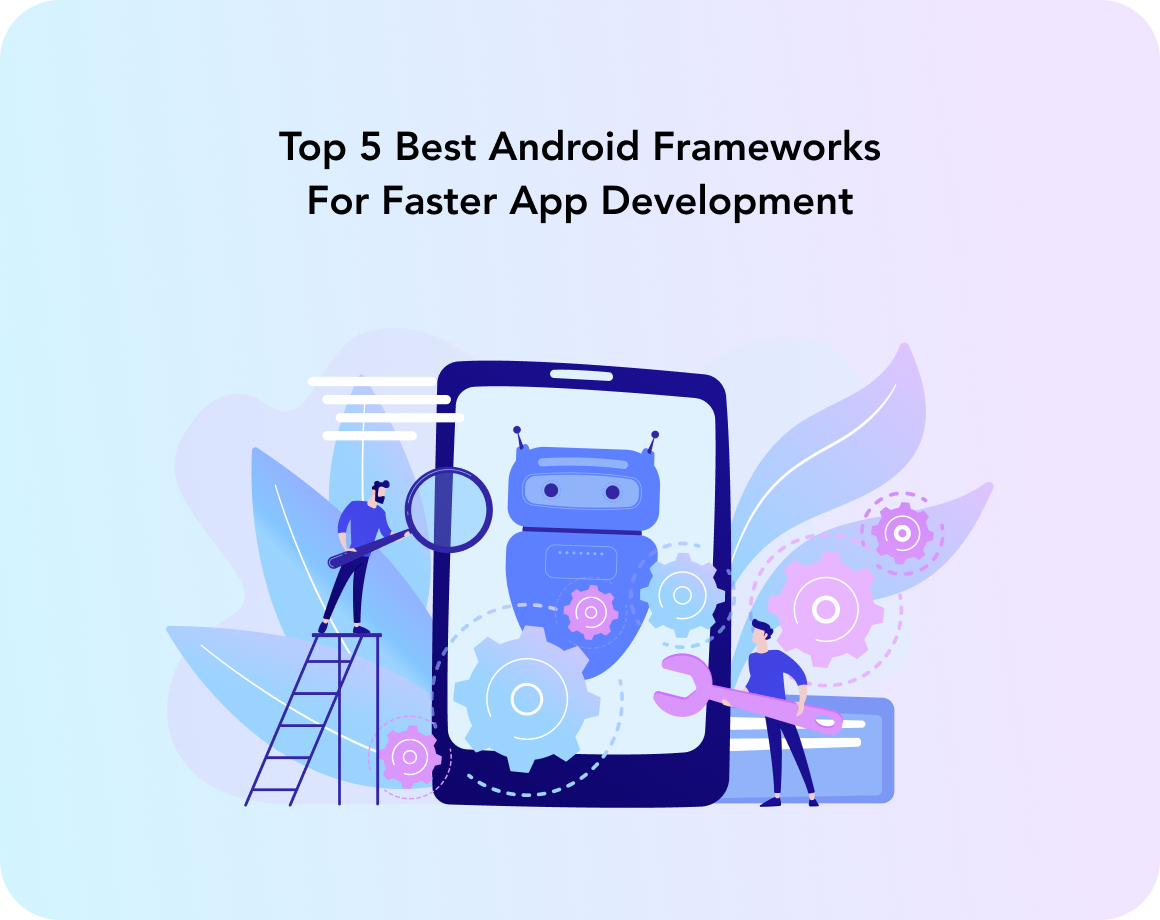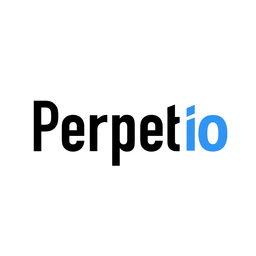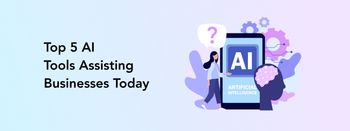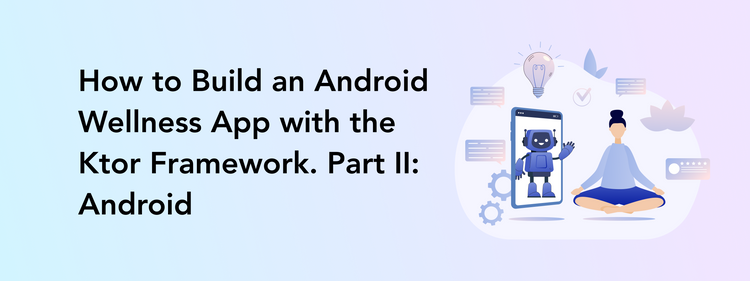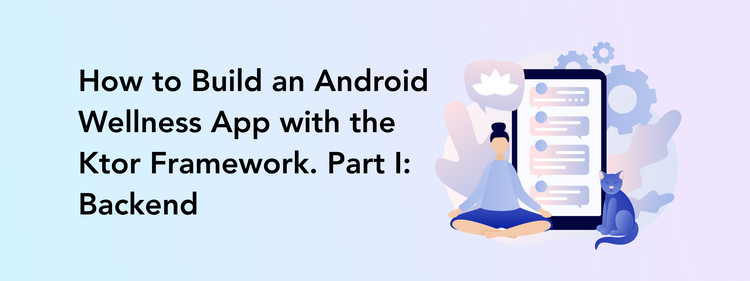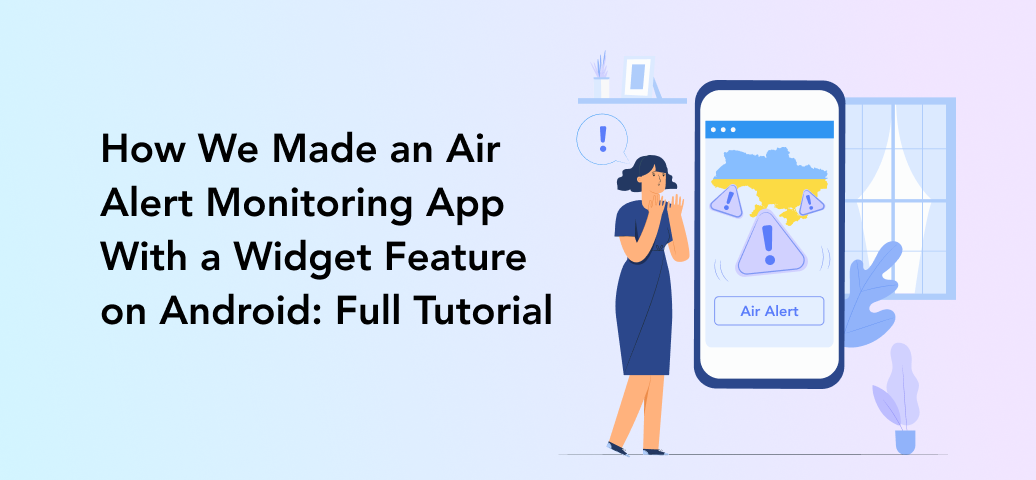For mobile app developers, choosing among the frameworks for Android development is essential for building successful mobile apps. While some might go for the straightforward Android Studio and Kotlin language to build a native Android app, other developers enhance their process with cross-platform frameworks for you to reach out to more platforms at once.
Key Points of Android Frameworks to Look Out
Before we list some of the most popular Android app development frameworks out there, let’s analyze which parameters you should keep in mind before making a choice.
Development Cost
The cost of developing an Android app can vary significantly depending on the choice of framework. Cross-platform Android app development frameworks such as React Native and Flutter often have lower development costs because one application can run on both Android and iOS platforms. These are suitable for MVPP projects where the main task is to introduce a product on the market ASAP and validate app idea before creating a more complex solution.
At the same time, you should pay attention to the popularity of the framework: the fewer software engineers who specialize in it, the more expensive it is to hire someone for your project.
Performance
If you need a highly complex, layered app with all the cutting-edge technologies, like AR, your preferred Android framework should be able to undertake the task and create a solution that is fast and efficient.
For example, cross-platform Android frameworks for application development like Flutter or React Native, are generally less suitable for big-scale, enterprise-level applications, so it is better to go with native development in that case.
Purpose of the framework
Each of the top Android frameworks has its pros and cons and, more importantly, a purpose it was created for. Some frameworks are centered around game development, some are there to simplify the native Android app development, and others are for cross-platform app development. When choosing an appropriate Android framework, remember the result you want to achieve and the app type you are going for.
For example, let’s take a look at a use case of app development for Big Ticket. It’s a mobile application for finding events nearby. Our client wanted a simple yet speedy solution that would allow users to access lots of events in a matter of seconds. To build a fast, highly-responsive solution that can load numerous events fast, we went with separate native iOS and Android applications.
Language and developer’s skills match
While some of the best Android frameworks for app development are simply extensions for more efficient native Android development, others are cross-platform solutions run on languages different from Kotlin or Java. For example, Flutter is based on its very own Dart programming language, even though it is inspired by Java and JavaScript.
As a result, not every Android developer might be well-acquainted with those frameworks and need additional training. That’s why you should double-check the skills of the developers in your preferred team to be sure they can work with certain frameworks.
In Perpetio’s case, we have separate developers who specialize in Android and Flutter mobile app development, so they can fully focus on mastering these different approaches and deliver the highest quality of applications to our clients.
Top 5 Frameworks for Android App Development
Flutter
Flutter is an open-source mobile application development framework created by Google for Android, iOS, Windows, Mac, and Linux. It uses the Dart programming language to develop native mobile apps on any platform with a single codebase.
The main advantage of using Flutter for Android development is that it allows developers to quickly create applications, which can be easily ported across different operating systems without writing additional code. It means that you can hire one developer to work on one app that will run on both Android and iOS.
Read more:
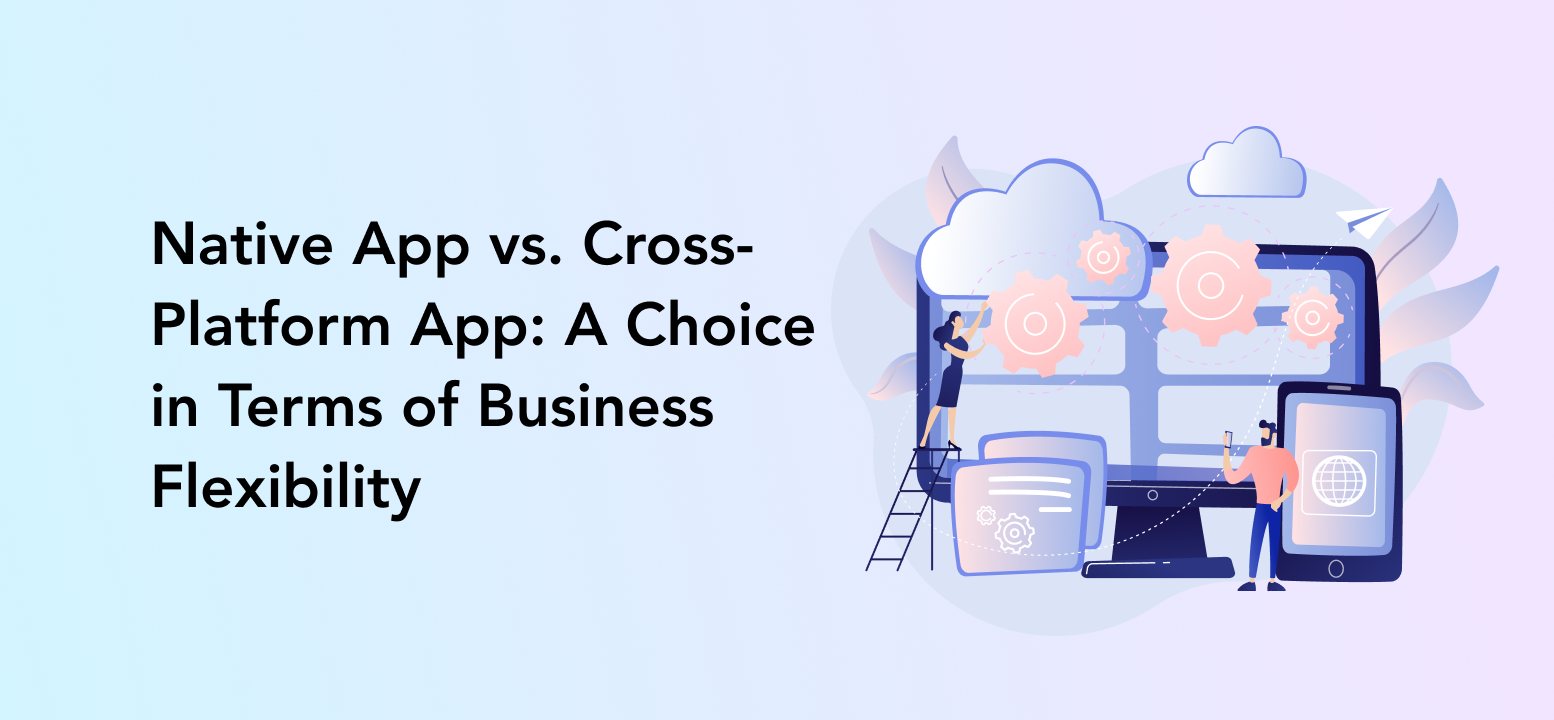
Plus, Flutter can be used with existing Android projects so developers don’t have to start from scratch every time they need a different platform version of their app.
How does Flutter create user interfaces that can’t be told apart from the native ones? Through widgets: built-in UI components that replicate the native UI elements of Android and iOS systems.
Overall, using Flutter for Android app development has many advantages such as
- improved performance thanks to the Hot Reload feature: developers can view any change made to the app right away to check whether it is working properly
- easy portability across platforms
- access to rich, native-like UI elements
- Integration of Google’s 2D engine Skia for vivid graphics
- fast iteration cycles
- developers can perform unit, bloc, UI, and integration tests
Apps built with Flutter: Google Pay, BMW, eBay
Learn more about Flutter app testing:
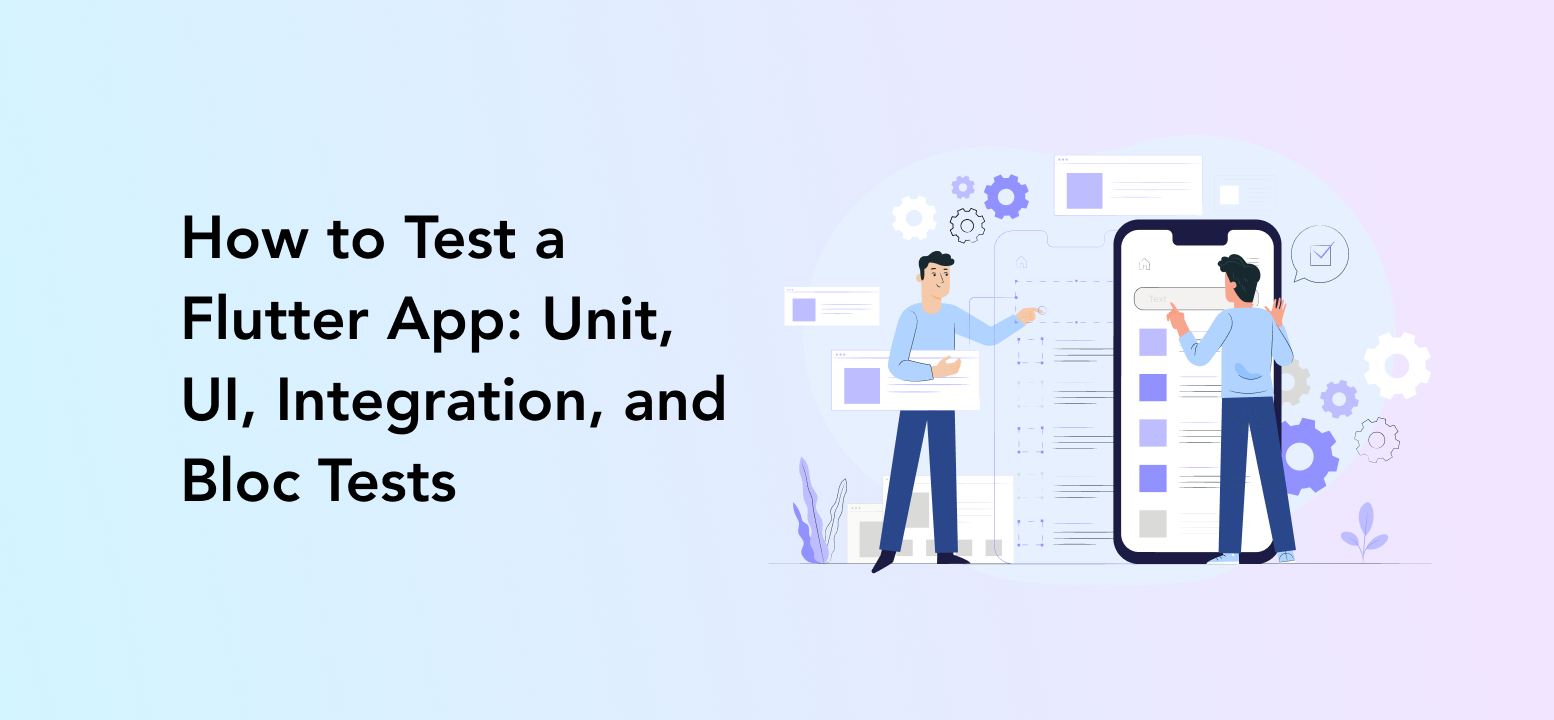
React Native
React Native is a JavaScript framework developed by Facebook that provides a way to create natively-rendered mobile applications for iOS and Android. As the name implies, React Native uses the React JavaScript library to build user interfaces.
Just like Flutter, React Native is an efficient way of creating cross-platform apps because it enables developers to write only one codebase for both Android and iOS. This means that developers can focus on developing their app for a single platform, instead of having separate codebases for each version of their app. In addition, React Native uses native UI components from each platform which makes it easier to create high-quality user interfaces that look natural on both platforms.
React Native relies on JavaScript, so it’s compatible with a larger amount of third-party tools and services, giving React Native apps a wider scope of features.
One disadvantage of React Native is that the applications might be slower performing as compared to other cross-platform Android frameworks. The reason for it is the JavaScript bridge used for communication between native elements and JavaScript. Basically, the JavaScript code is sending data to the native app code via a bridge, so when we are talking about lots of data loading at the same time, a traffic jam can occur and a user will see a white screen for a second or two.
Apps built with React Native: Instagram, Wix, UberEats
Ionic
Ionic is an open-source SDK used to create hybrid mobile apps with HTML, CSS, and JavaScript. It is a cross-platform framework that allows building one app to run across multiple platforms.
This framework can integrate with AngularJS and Apache Cordova plugins to access in-device functionality like GPS navigation or camera. It provides developers with a comprehensive library of mobile-optimized UI components and tools to develop interactive, high-performance applications.
Additionally Ionic also gives options for customizing the look and feel of your applications by easily integrating popular icon libraries like Font Awesome or Material Design Lite into your project without having to write any additional code. This helps developers create aesthetically pleasing apps without needing design skills or extensive coding experience. With its simple commands, it can be used by even novice coders making it ideal for the rapid prototyping of mobile applications before they are released in a production environment.
Ionic has quickly become one of the most popular frameworks available when it comes to developing hybrid applications on Android devices due to its wide array of features coupled with its easy setup process. Those specialists already familiar with web development, won’t have any trouble creating mobile applications with Ionic. Because of its base languages, Ionic is a good choice for web apps: in-browser solutions acting like native applications.
Apps built with Ionic: NHS, 86400, Sworkit
Corona SDK
Corona SDK is a cross-platform mobile development framework that allows developers to rapidly build and deploy apps and games for iOS, Android, and other devices. Developed by Corona Labs Inc., it is based on the scripting language Lua.
Corona makes developing for multiple platforms simpler than ever before. Its Lua programming language has a gentle learning curve which makes it suitable even for newbies who want to get started with mobile app development quickly. The framework features thousands of APIs and plugins as well as an ability to call any native library, meaning that there is no native-like feature Corona can’t replicate.
The built-in 2D graphics engine in Corona is capable of rendering stunning visuals with ease – allowing developers to create immersive environments quickly. That’s why this framework is particularly loved by 2D game developers.
Apps built with Corona: The Lost City, Tiny Boxes, Zip Zap
Unity
Talking about mobile game development, we can’t miss out on Unity. Unity, an engine developed by Unity Technologies, provides a platform for game development. The engine offers robust tools for creating interactive experiences with 2D and 3D graphics as well as animation, audio, video, physics simulations, artificial intelligence (AI), and more. Over 50% of new mobile games are built with Unity.
Using Unity for Android app development enables developers to take advantage of its strong feature set while also enjoying the benefits of working with a mature product that is well-suited for creating native Android game apps.
Furthermore, Unity's cross-platform capabilities allow programmers to design an application once but deploy it across multiple platforms without having to rewrite code or do any heavy lifting — making it easy to scale up or down depending on your needs.
Unity boasts deep support throughout its entire ecosystem when it comes to developing apps specifically targeted towards Android devices — from integrated debugging tools through Google Play Services SDKs like Admob Ads Integration which facilitate better monetization strategies when deploying your app through Google Play Store after you are done building it using unity.
Apps built with Unity: Subway Surfers, Crossy Road, Pokemon Go
How to Choose an Android Framework for Your Business?
Understand where you stand financially
Your first step when it comes to choosing among top Android frameworks for app development is to understand not only your opportunities but your restraints too. Many of the decisions about the tech stack will be based on your budget. For example, getting two native applications for Android and iOS will cost twice as much as one cross-platform solution. That is one of the main reasons many businesses go for cross-platform app development. What’s more, the less common a framework is, the higher the check per hour of developer’s work will get.
Set clear goals for the app
Having clear goals in mind before choosing between Android frameworks for faster app development will help you focus on what’s important for developing your app. Identifying specific objectives such as user experience, performance requirements, platform compatibility and more will allow you to make informed decisions when deciding on which framework best suits those needs.
For example, if you need a gaming application, Unity is the way to go. If your goal is to create an MVP to reach the market in the fastest terms possible and make a presence on the Google Play Market and App Store simultaneously, cross-platform Android development frameworks, like Flutter, is your choice.
Choose a reliable Android app development team
Finally, when it comes to developing mobile apps, having a reliable team is essential for success. An experienced, knowledgeable Android frameworks developer can consult you on the best choice, offer tech and business advice, and undertake the job from A to Z.With years of experience in both Android app development services and cross-platform projects, Perpetio can provide clients with quality results that meet their particular needs – from robust native applications optimized for speed or scalability all the way up to multi-platform Flutter app development services. The Perpetio team consists of specialists skilled in all aspects of mobile application development from UI/UX design and development to launch assistance and marketing strategy execution – providing our clients with valuable resources needed throughout every step of their process.
Final Thoughts
Programmers have a wealth of options when it comes to Android frameworks for app development for creating their next app. From Flutter and React Native, to Ionic and Unity, any developer can find the right framework that suits their needs and app goals. By taking into account performance, scalability, complexity and cost, developers can make an informed decision on which frameworks for Android application development are best for their projects. While the best Android Framework ultimately depends on the individual project requirements, this blog post has highlighted some of the top choices available today so Android developers can easily choose from them.
FAQ
Which Android app development framework can be considered the most popular?
The most popular Android app development frameworks include Flutter, React Native, Ionic, Corona SDK, and Unity game engine.
Which Android app development frameworks can be used for cross-platform app development?
Flutter, React Native, Ionic, and Corona SDK can all be used for cross-platform Android app development.
What technologies or frameworks can be applied to build an Android application?
You can either build a native Android application using Kotlin or Java programming languages or go the cross-platform way and choose dedicated frameworks like Flutter.
